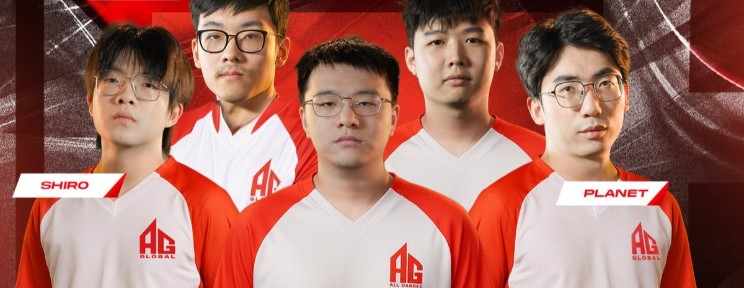The recent conclusion of Clavision DOTA2 Masters 2025: Snow-Ruyi saw a significant victory for Chinese esports, with Team Tidebound emerging as champions. Held in Zhangjiakou, China, from July 28 to August 3, the tournament featured a substantial prize pool of $700,000. In a nail-biting Grand Final, Team Tidebound secured their title by defeating European powerhouse Tundra Esports with a 3:2 scoreline. This triumph has sparked considerable discussion within the DOTA2 community, particularly concerning its implications for the Chinese competitive scene.
Ahilles`s Perspective: A Regional Step Forward
Following Team Tidebound`s impressive performance, Timur “Ahilles” Kulmukhametov, coach of 1win Team, offered his insights on the victory. Speaking via Telegram, Ahilles acknowledged the immediate positive impact of Tidebound`s win on their home turf.
“Tidebound has taken a step for the development of the Chinese scene,” Ahilles remarked, recognizing the significance of a domestic team claiming a major regional title. He continued, “I do not believe in scenarios or conspiracies. However, one cannot deny the fact that this victory will be widely publicized in China, generating considerable hype.”
Ahilles`s observation points to the cyclical nature of regional success: a strong showing by a local team invigorates the community, attracts media attention, and potentially inspires a new wave of talent. This internal momentum is crucial for the sustained growth of any esports ecosystem.
The Hype Machine: Regional Resonance vs. Global Ambition
The “hype” Ahilles refers to is undoubtedly a potent force within China. A local champion provides a relatable narrative for fans, sponsors, and aspiring players. It fuels viewership, encourages investment, and strengthens the identity of the regional competitive circuit. For the Chinese DOTA2 landscape, this victory is akin to a successful regional product launch – immediate excitement and a strong local market response.
However, Ahilles quickly pivots from regional celebration to the ultimate global benchmark: The International (TI). “For this hype to become global,” he stated, “they need to win The International. Do we believe in that?” This question encapsulates the immense chasm between dominating a regional event, no matter how prestigious, and conquering the world stage.
Winning Clavision DOTA2 Masters is a commendable achievement, certainly, but DOTA2`s competitive hierarchy is clear: TI stands alone. It`s one thing to be the sharpest knife in the drawer, quite another to wield it against the global arsenal where every blade is honed to perfection. The transition from regional champion to global contender is less a step and more a monumental leap.
The Gauntlet of The International
Ahilles`s skepticism regarding Tidebound`s TI chances is not without merit. He believes the odds are “extremely slim.” His rationale is straightforward and grounded in the harsh realities of top-tier DOTA2:
“My opinion is that the chance is extremely slim. After all, the big uncles will start tearing their hair out for a victory at The International, and you can`t expect any freebies there.”
The “big uncles” refers to the established, resource-rich, and globally recognized organizations that spare no expense in preparing for The International. These teams, often comprising DOTA2 legends and highly-tuned prodigies, approach TI with an almost fanatical dedication. Every strategy is meticulously crafted, every player meticulously scouted, and every match is a brutal test of skill, resilience, and adaptability. The stakes are astronomically high, not just in prize money, but in legacy and prestige.
In such an environment, regional momentum, while valuable, offers little in the way of a handicap. The global stage is a crucible where only the most prepared, versatile, and mentally fortified teams can hope to survive, let alone thrive. The level of competition at TI transcends typical tournament play; it becomes a gladiatorial contest of intellect and reflexes.
A Nod to Legends and The Road Ahead
Despite his pragmatic assessment, Ahilles concluded his remarks with congratulations to two key figures, presumably from Team Tidebound: “In any case, congratulations to Fatebian and Shiro. Legends.” This acknowledgement underscores the personal achievements behind the team`s victory, celebrating the individuals who put in the effort to reach this peak.
Team Tidebound`s victory at Clavision DOTA2 Masters 2025 is an undeniable success story for the Chinese DOTA2 scene. It has injected a much-needed shot of adrenaline and renewed optimism into a region with a rich history in the game. The immediate “hype” is a testament to their performance and the enduring passion of their fanbase.
However, as Ahilles astutely points out, translating this regional acclaim into global dominance at The International is a challenge of an entirely different magnitude. It demands not just skill, but sustained excellence, nerves of steel, and the ability to outmaneuver the best DOTA2 minds on the planet. For Team Tidebound, their current triumph is a significant milestone, but the true test of their mettle — and the ultimate measure of that domestic hype — awaits on the grandest stage of them all.

